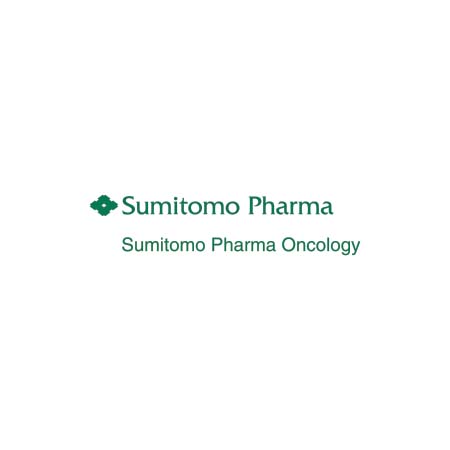
Sumitomo Pharma Oncology Receives Orphan Drug Designation for TP-3654, an Investigational Oral Inhibitor of PIM Kinases for the Treatment of Myelofibrosis
June 9, 2022
CAMBRIDGE, Mass., June 8, 2022 /PRNewswire/ — Sumitomo Pharma Oncology, Inc., a clinical-stage company focused on novel cancer therapeutics, today announced the U.S. Food Drug and Administration (FDA) granted Orphan Drug Designation for TP-3654, the company’s proprietary investigational oral inhibitor of PIM kinases, for the treatment of myelofibrosis.
“This designation is an important milestone in the development of TP-3654 and highlights the need for potential new treatment options for patients with myelofibrosis,” said Patricia S. Andrews, CEO and Global Head of Oncology, Sumitomo Pharma Oncology, Inc. “This rare hematologic cancer can also progress and worsen. We are excited about collaborating with investigators to advance this clinical-stage asset with the goal of improving patient outcomes.”
The FDA’s Orphan Drug Designation is granted to investigational therapies addressing rare medical diseases or conditions that affect fewer than 200,000 people in the United States. Myelofibrosis is a rare type of bone marrow cancer which disrupts an individual’s normal production of blood cells.1 Myelofibrosis has approximately 1.5 reported cases per 100,000 people each year in the United States.2
“TP-3654 is an investigational oral inhibitor of PIM kinases. PIM kinases have potential antitumor and anti-fibrotic effects through multiple pathways, including induction of apoptosis.3,4 Notably, PIM kinase expression correlates with increased cell survival and reduced apoptosis in tumors, supporting the potential of PIM kinases as novel therapeutic targets,”3 explained Jatin J. Shah, M.D, Chief Medical Officer of Sumitomo Pharma Oncology, Inc. “PIM-1 expression is significantly elevated in myelofibrosis hematopoietic cells and therefore a potential therapeutic target for myelofibrosis.”4
TP-3654 is currently being evaluated in a Phase 1/2, multicenter, dose-escalation, open-label trial to assess safety, tolerability, pharmacokinetics, and pharmacodynamics in patients with intermediate or high-risk primary or secondary myelofibrosis. It is being conducted in the United States and Japan. To learn more about the study and eligibility for enrollment visit clinicaltrials.gov (NCT04176198).
About TP-3654
TP-3654 is an oral investigational inhibitor of PIM kinases, which has potential antitumor and anti-fibrotic effects through multiple pathways, including induction of apoptosis.3,4 TP-3654 inhibited proliferation and increased apoptosis in murine and human hematopoietic cells expressing clinically relevant JAK2V617F mutation.4 TP-3654 alone and in combination with ruxolitinib normalized WBC and neutrophil counts, and reduced spleen size and bone marrow fibrosis in JAK2V617F and MPLW515L murine models of myelofibrosis.4 TP-3654 is currently being evaluated in two clinical trials; A Phase 1 study to treat TP-3654 in patients with advanced solid tumors (NCT03715504); A Phase 1/2 study of oral TP-3654 in patients with intermediate and high-risk myelofibrosis (NCT04176198).
About Sumitomo Pharma Oncology
Sumitomo Pharma Oncology, Inc., is a wholly owned subsidiary of Sumitomo Pharma Co., Ltd. As a global oncology organization with teams in the U.S. and Japan, SMP Oncology is committed to advancing purposeful science by transforming new discoveries into meaningful treatments for patients with cancer. SMP Oncology’s robust and diverse pipeline of preclinical and advanced-stage assets spans multiple areas, including oncogenic pathways, survival mechanisms and novel protein interactions, which aim to address unmet clinical needs in oncology. For more information, visit www.oncology.sumitomo-pharma.com.
About Sumitomo Pharma
Sumitomo Pharma is among the top-ten listed pharmaceutical companies in Japan, operating globally in major pharmaceutical markets, including Japan, the U.S., China, and other Asian countries with more than 7,000 employees worldwide. Sumitomo Pharma defines its corporate mission as “To broadly contribute to society through value creation based on innovative research and development activities for the betterment of healthcare and fuller lives of people worldwide.” Additional information about Sumitomo Pharma is available through its corporate website at https://www.sumitomo-pharma.com.
Disclaimer Regarding Forward-Looking Statements
This press release contains “forward-looking statements,” as that term is defined in the Private Securities Litigation Reform Act of 1995 regarding the research, development, and commercialization of pharmaceutical products. The forward-looking statements in this press release are based on management’s assumptions and beliefs in light of information presently available and involve both known and unknown risks and uncertainties. Any forward-looking statements set forth in this press release speak only as of the date of this press release. We do not undertake to update any of these forward-looking statements to reflect events or circumstances that occur after the date hereof. Information concerning pharmaceuticals (including compounds under development) contained within this material is not intended as advertising or medical advice.
References
1. “Myelofibrosis – Symptoms And Causes”. Mayo Clinic, 2022, https://www.mayoclinic.org/diseases-conditions/myelofibrosis/symptoms-causes/syc-20355057#:~:text=Myelofibrosis%20is%20an%20uncommon%20type,can%20cause%20weakness%20and%20fatigue.
2. “Myelofibrosis; Causes, Symptoms, Treatment & Prevention”. Cleveland Clinic, 2022, https://my.clevelandclinic.org/health/diseases/15672-myelofibrosis#:~:text=Myelofibrosis%20is%20a%20rare%20condition,in%20people%20over%20age%2050.
3. Foulks JM, Carpenter KJ, Luo B, et al. A small-molecule inhibitor of PIM kinases as a potential treatment for urothelial carcinomas. Neoplasia. 2014;16(5):403-412.
4. Nath D, Yang Y, Dutta A, Whatcott C. The PIM kinase inhibitor TP-3654 in combination with ruxolitinib exhibits marked improvement of myelofibrosis in murine models. Blood. 2018. doi:10.1182/blood-2018-99-119421.
SOURCE Sumitomo Pharma Oncology, Inc.